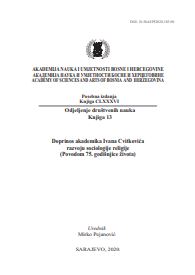
DOPRINOS AKADEMIKA IVANA CVITKOVIĆA RAZVOJU SOCIOLOGIJE RELIGIJE (POVODOM 75. GODIŠNJICE ŽIVOTA)
1. Sociolozi o Cvitkovićevom doprinosu sociologiji religije 2. Kritičari o knjigama Ivana Cvitkovića 3. Bibliografija radova
More...We kindly inform you that, as long as the subject affiliation of our 300.000+ articles is in progress, you might get unsufficient or no results on your third level or second level search. In this case, please broaden your search criteria.

1. Sociolozi o Cvitkovićevom doprinosu sociologiji religije 2. Kritičari o knjigama Ivana Cvitkovića 3. Bibliografija radova
More...
Review of: Ivan Cvitković "Društvena misao u svetim spisima".
More...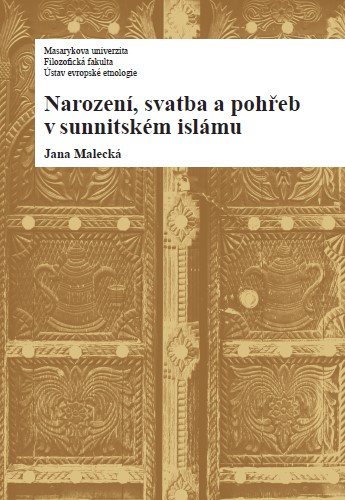
The publication deals with Sunni Muslim traditions connected with birth, wedding, and funeral. It focuses on Syria, Jordan, Israel, Palestine, and the Czech Republic. It describes traditions of Sunni Muslims living in mentioned Arab countries along with traditions of the Syrians, Jordanians, Palestinians living in the Czech Republic, and Czech converts as well. Selected traditions of these two different cultures (Arab Muslims and Czech Muslims) are compared so we can note the differences and similarities between their bearers who are living in various cultural and religious areas.
More...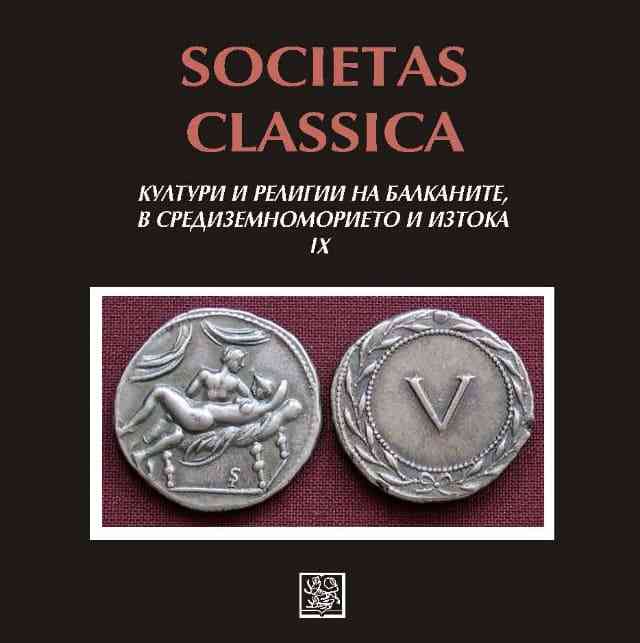
The influence of radical islam is spreading not only in the Middle East but also around the rest of the world. With the surge of the terrorist attacks in Europe, the Middle East, Africa and USA, commited in the name of radical organizations such as Islamic State and Al Qaeda, there is an urgent need of finding a solution to counter radicalization among the muslim population and converts around the world. In this paper the roots of the modern doctrine of the radical islam are explained as well as the reason why sufism can be used as an instrument to fight the radicalization in islam.
More...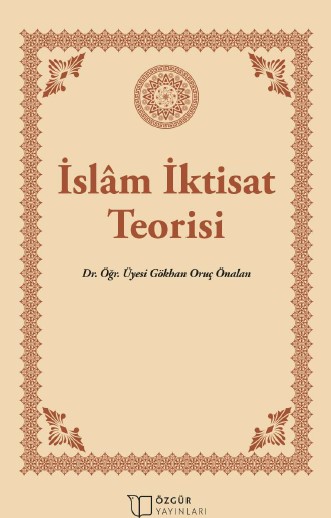
Verse 27 of Surat al-Shoora clarifies the criteria by which the blessings and opportunities in the life of this world are distributed among the servants, and thus helps the minds to correctly grasp the message emphasized in verse 26, that Allah gives more of His bounty to His servants who believe and do good deeds. If Allah had given all people the blessings and resources such as intelligence, health, talent, etc. abundantly and equally in this world, there would be no unity, stability and order on earth. People would not be concerned about developing their skills, there would be no regular working life, no search for a balance and system (for example, the science of economics) for the sake of employment and the sharing of material opportunities, and as a result, civilizations and states would not have been established. When we interpret the message of verse 41 of Surat al-Rûm in a general framework within the framework of the economic problems of today's world, we come to the fact that the cause of the economic problem (mischief) is man and the capitalist economic system that makes man think about what he needs and not what he should think about the distribution of the blessings (justice in distribution). Therefore, if an economic understanding centered on prosperity and felah, that is, the economic principles of Islam, takes its place in people's lives, there will be no trace of these problems.
More...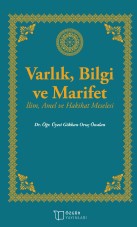
The creation of the human being is in two parts, the body and the soul. As verse 26 of Surat al-Hijr points out, the body is in the process of physical and biological change starting from the soil as a work and manifestation of Allah's attribute of creation. The soul is as much in need of spiritual power as the body is in need of necessities. Man wants to recognize and know the Divine will that created him, to comprehend the reason for the creation of this world and to learn the purpose of his creation in this world. Islam is the only religion in the sight of Allah (swt) that was sent to all mankind, whose rule will transcend the ages and last until the Day of Judgment, the religion of Tawheed, which was preached by the first human being and the first Prophet, Hz Adam (as), and the continuation (abrogation) of the following celestial religions. In the year 610 A.H., Jabrâil (as) conveyed his mission to our Prophet Muhammad (saw), and thus the Messenger of Allah (saw) was appointed by Allah (swt) as our last and greatest guide. The purpose (maqāṣid al-sharī'a) of the religion's theological, practical and ethical rulings is to ensure that the servants attain happiness in this world and the Hereafter, and to gain the pleasure of Allah (swt) in all their behaviors. In verse 10 of Surat al-Fāṭir, the expression "beautiful words" refers to knowledge, thus drawing attention to the fact that deeds are complementary to knowledge. Thus, the path to maqāṣṣud al-shari'a is through knowledge and deeds, and knowledge is the most virtuous of deeds. The purpose of knowledge is to act upon it.
More...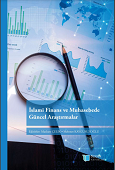
As is well known, interest is an economic fact that has been known and practiced since time immemorial and is subject to positive or negative assessments. This fact, which has not lost its significance throughout the history of the economy, is still considered one of the most important indicators that distinguish political and economic regimes. Due to this importance, since its inception, interest has been among the research topics of philosophers and economists, especially celestial religions. Islam, the last of the heavenly religions, has taken up this problem, which is of great interest to society, in a form of law based on its own moral laws, and has taken a religious-legal approach to interest. Thus, the Holy Qur’an states: “O you who believe! Do not consume one another’s property illicitly, and do not kill yourselves, except by mutual consent. Surely Allah is Merciful to you. Whoever commits aggression and oppression, We will cast him into the Fire of Hell. That is easy for God. If you avoid the major sins, We will cover your sins and admit you to a beautiful place. “(Surat an-Nisa, verses 29-31) From this point of view, scientific-research work is relevant from the point of view of research of scientific approaches in the importance of interestbased system approaches in the modern management system.
More...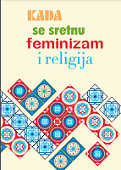
Ovaj kratki esej počinjem izrekom (hadis) poslanika Muhammeda zbog toga što naglašava obavezu vjernika, vjernica i općenito ljudi da ustanu protiv nepravde bilo koje vrste, uključujući i nepravdu prema ženama. Danas je diskriminacija žena prisutna u svim društvima, samo su načini i oblici obespravljenosti različiti ovisno o kulturološkom kontekstu. Baš zbog toga je važno različitim argumentima i resursima, pa i religijskim, podržati feminističke napore žena i muškaraca. Iako mnogi/e vjernici/e, kao i oni/e koji/e ne vjeruju, misle da feminizam i religija nemaju ništa zajedničko te da je njihovo povezivanje oksimoron, iskustva i društvene prakse u mnogim zemljama pokazuju da to nije tačno. I feminizam i religija traže da se poštuje dignitet svake osobe – i muškarca i žene – te naglašavaju nužnost slobode izbora i jednakih mogućnosti za ispoljavanje talenata i intelektualnih potencijala.
More...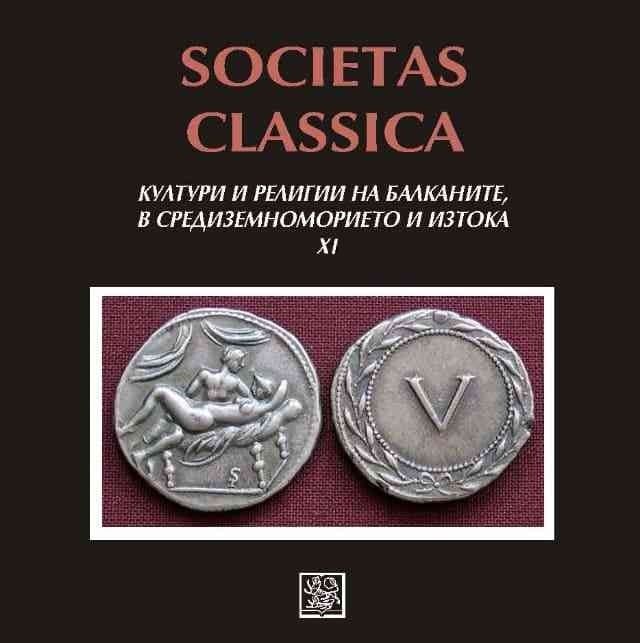
The present article deals with a contradiction that often makes the understanding of Muslim law and practice hotly debatable. On the one hand, alcohol and its consumption are strictly forbidden (ḥarām) in Islam. On the other hand, abundant evidence from medieval sources indicates that wine was a highly valued and socially accepted substance serving as the lyrical subject of beautiful poems some of which are considered among the finest literary forms in languages, such as Arabic and Persian. This study foregrounds the contradiction between religious norm and social practice that has raised vivid discussions among both Muslim religious scholars and Western Islamicists. The analysis thus aims to frame the issue by delineating the major Islamic scriptural sources and legal positions against the backdrop of selected (post-)modern conceptualizations, such as the approach recently suggested by Shahab Ahmed.
More...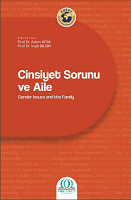
Throughout the extensive chronicles of human existence, homosexuality and gender reassignment, which were until recently seen as marginal, individual phenomena and were considered perversions by mainstream medicine, have gradually gained social, legal, and medical recognition over the past five decades, primarily in Western societies. Currently, homosexuality has ceased to be a social phenomenon and has become a social movement. Moreover, individuals, organizations, and states that do not embrace this condition are under global pressure. Based on fundamental sociological knowledge, the family, which serves as the bedrock of society and plays a crucial role in imparting social norms to individuals, has faced persistent challenges such as unmarried partnerships, postponed marriages, childlessness, and rising divorce rates. The increasing prevalence of homosexuality has exacerbated the challenges faced by the institution of the family. Not only is there a lack of a traditional family structure, but social conventions are completely reversed. Religion is often regarded as a means to avert the impending social apocalypse that humanity has brought upon itself. However, Protestant churches in the Western world have increasingly succumbed to the influence of LGBT advocacy groups. Consequently, it has begun to endorse the prevailing circumstances from a religious standpoint, permitting the appointment of homosexual priests and the solemnization of same-sex marriages within the church. The remaining prominent religions worldwide, particularly the Catholic Church and Islam, are significantly influenced by the explicit or concealed actions of LGBT advocacy groups. Today in Turkey, a significant number of religious folks, particularly among the younger generation, perceive homosexuality as a matter of personal volition and contend that religion should not meddle in such matters. This study seeks to examine the aforementioned issue from both a theoretical and practical standpoint. The compilation comprises writings by scholars specializing in diverse disciplines, including psychology, education, sociology of religion, religious education, and Islamic law
More...
Yüce Allah evreni yaratmış, orada belli yapılar ve ilişki ağları oluşturmuştur. Evren içerisinde akıllı ve iradeli yarattığı insanı, erkek ve kadın cinsiyeti olarak belirlemiş, aralarında tesis edilen evlilik bağıyla insanlığın varlığını ve sürekliliğini sağlamayı murat etmiştir. Diğer bir deyişle Yüce Allah insanı bir kadın ve bir erkek olarak yaratmış, insan neslinin bu iki zıt cinsiyetin hukuk çerçevesinde birlikteliğinden doğacak çocuklarla devam etmesini dilemiştir.
More...
Allah Teâlâ insanın dünyaya gelmesi, sağlıklı ve mutlu bir şekilde büyüyüp yetişmesi, huzurlu ve güvenli bir toplum oluşturması, imtihan edilmesi için ilk insandan itibaren nikâh akdi altında belli şartlarla aile kurumunu var etmiştir. Aile içerisinde de insanı kendi başına bırakmamış, karı-koca, anne-baba, kız-oğul gibi cinsiyete ve onda var edilen özelliklere uygun roller ve bunlara bağlı hak ve sorumlulukları ayrıntılı bir şekilde belirlemiştir. Bu düzenin var olması ve devam etmesi için de ilk insandan itibaren insanı kadın ve erkek iki farklı cinsiyette ve farklı özellikte yaratmıştır. Kur’ân-ı Kerim’de çeşitli vesilelerle pek çok ayetle buna vurgu yapmıştır.
More...
Rahman ve Rahim olan Allah’ın Adıyla Kıymetli başkanım ve hocalarım, muhterem hazirûn, Öncelikle sizi Allah’ın selamıyla selamlıyorum. Konuşmalarıma başlamadan önce Filistinli kardeşlerimizi anmak istiyorum. Masum insanların vefat etmesine, evlerinin yıkılmasına ve bir halkın yerinden edilmesine neden olan bu insanlık trajedisinin ve savaş suçunun bir an önce bitmesi ve Filistin halkının felaha kavuşmasını, bir daha aynı şeyleri yaşamadan mutlak zafere ulaşmasını Rabbimden niyaz ediyorum. Sempozyum davetiniz için organizasyon ekibine teşekkür ederim. Bu tür bilimsel etkinlikleri düzenlemek yorucu olmakla birlikte farklı disiplinlerden araştırmacıların bir araya gelerek bilgi ve deneyimlerini paylaştıkları, yeni fikirler ürettikleri önemli platformlardır. Özellikle cinsiyet meselesi, disiplinler arası bir şekilde ele alınması gereken hassas ve önemli bir konudur. Bu programın da böyle bir platform olmasını ve konuyla ilgili çalışmalara önemli katkılar sunmasını diliyorum. Sempozyumun başarılı bir şekilde gerçekleşmesinde emeği geçen herkese, özellikle bu programı düzenleyen KURAV’a ve Uludağ İlahiyat’a tekrar teşekkür ederim.
More...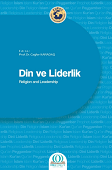
The Turkish term “lider” is derived from the English word “leader”, which denotes the concept of leading or advancing. This term has been adopted into Turkish with a similar meaning. In Turkish usage, the term “lider” often implies the concept of “önder” (guide), and similarly, “liderlik” is associated with “önderlik” (guidance). The introduction of various adjectives has expanded and diversified the application of the term. For example, terms such as religious leader, political leader, community leader, transformational leader, and charismatic leader illustrate this broad usage. In the context of the “Religion and Leadership Workshop” organized by the Qur’an Research Foundation (KURAV), the term “lider” should primarily be interpreted as referring to a “religious leader” or a “leader in religion”. However, it is important to recognize that a religious leader may also exhibit social, cultural, charismatic, and transformative attributes, thereby integrating aspects of political, social, or charismatic leadership. The ideal framework for such a leadership, as exemplified by prophets, represents an aspirational model, though real-life leaders may vary in their alignment with this ideal. This dimension of leadership is also explored in our workshop through papers, discussions, and contributions when they touch on the realities and contemporary situations. The Religion and Leadership Workshop features four principal papers, including an inaugural conference, and the final volume of proceedings encompasses a total of five papers. These are Yalçın Akdoğan’s “Religion and Leadership” (Inaugural Conference); Yusuf Şevki Yavuz’s “Leadership in the Qur’an”; Adem Apak’s “Muhammad (pbuh) and His Leadership”; Bayram Ali Çetinkaya’s “Turkey-Centered Politics in Contemporary Islamic Thought and Leadership Quests”, and Mehmet Ali Büyükkara’s “Religious Leadership in Turkey”. In addition to these papers, brief discussions contributed by Adnan Demircan, Ahmet Yaman, Bünyamin Erul, Yusuf Şevki Yavuz, and Cağfer Karadaş provide further insights. The workshop is also enriched by individual assessments from participants, including Mustafa Gencer’s “Ottoman Modernization in the Tanzimat and Meşrutiyet Periods”; Mustafa Tekin’s “Religion in Leadership and Leadership in Religion”, and Şaban Ali Düzgün’s “Process Analysis of Modernization from the Ottoman Empire to the Turkish Republic”. These contributions collectively offer valuable perspectives and enhance the scholarly discourse of the event.
More...
Liderlik açısından Kur’ân-ı Kerim incelendiği takdirde Allah’ın, yer kürede yarattığı andan itibaren insanların bir liderin yönetimi altında yaşamaları gerektiğini, ataları Hz. Âdem’i peygamberlikle görevlendirmesinden anlamak mümkündür. Nitekim bu husus meâlen şöyle beyan edilmiştir: “Şüphesiz Allah, Âdem’i, Nûh’u, İbrahim ailesini (soyunu) ve İmran ailesini (soyunu) birbirinden gelmiş birer nesil olarak seçip âlemlere üstün kıldı. Allah, her şeyi hakkıyla işitendir, hakkıyla bilendir”. Bu ilâhî beyanda geçen “seçme” peygamber olarak seçmek anlamına gelir ki bütün peygamberlerin insanlara lider ve yönetici yapıldıkları ise meâlen şöyle belirtilmiştir: “Onları (peygamberleri) bizim emrimizle doğru yolu gösteren önderler (liderler) yaptık ve kendilerine hayırlar işlemeyi, namazı dosdoğru kılmayı, zekâtı vermeyi vahyettik. Onlar sadece bize ibadet eden kimselerdi”. Âyetin metninde geçen “eimme” kelimesi önder anlamındaki “imâm” sözcüğünün çoğuludur, bilindiği gibi daha sonra telif edilen kelam literartüründe insanlara önderlik yapan ve onları yöneten devlet başkanı bu tabirle ifade edilmiştir. Kur’ân-ı Kerim’de liderliği ifade etmek için kullanılan başka bazı kelimelerin daha bulunduğunu söylemek mümkündür, bunlar da mülk ve halife kavramlarıdır.
More...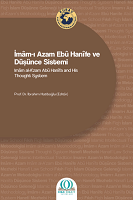
The book Imām al-Aʿzam Abū Hanīfa and His Thought System delves deeply into the life, methodology, and intellectual world of Imām al-Aʿzam Abū Hanīfa, one of the cornerstones of Islamic thought. The book comprises papers and discussions presented at the “Symposium on Imām al-Azam Abū Hanīfa and His System of Thought”, organized by the Qur’an Research Foundation (KURAV) in Bursa from October 16–19, 2003. In this symposium, which was contributed to by seventy-seven academics, the personality and ideas of Abū Hanīfa were addressed from a broad perspective. The work extensively examines topics such as “Abū Hanīfa’s Personality,” “His Methodology (I-III),” “The Hanafī School (III),” “Abū Hanīfa in Political and Cultural Tradition,” “Abū Hanīfa and the Science of Kalām,” “Abū Hanīfa’s Thought (I-II),” “Abū Hanīfa and Hadīth (I-II),” and “Abū Hanīfa’s Place in Legal Thought.” In particular, the book offers captivating details about his understanding of hadīth and sunnah, his approach to interpreting narrations, and his influence on Islamic sciences. This book presents Abū Hanīfa’s thoughts not only in a historical context but also as a source of inspiration for contemporary Islamic thought, offering readers a multi-dimensional perspective. It appeals to both academics and a broader audience interested in Abū Hanīfa’s intellectual world. As such, it serves as a significant reference work for those engaged in the field of Islamic studies. Abū Hanīfa is one of the founding figures who shaped the Islamic community both doctrinally and practically from the very early periods. He lived at a time when narrations had not yet been compiled in specific collections, and his thought and worldview were grounded in the texts (nass) without any derogatory treatment. He bequeathed to us a vision that established a balance between faith (iman), worship (ibadah), excellence (ihsan), and the harmony between the outward (zahir) and inward (batin) dimensions of Islamic life. The comprehensive perspective established by Imām al-Aʿzam has continued to serve as a consistent and enduring model of coherent thought, always offering a way out for humanity during times of crisis. The scholarly personality of the great Abū Hanīfa has been the subject of numerous academic studies; however, for the first time, an event of such a wide scope, reflecting Turkey’s intellectual heritage, has been organized to address his multifaceted contributions. Not only Sunni jurisprudential thought but also the broader conception of Islamic jurisprudence, and not only from the perspective of religious sciences but also encompassing social sciences, were examined through a holistic approach. Over forty papers and discussions provided an in-depth analysis of his thought. Through this scholarly event, the internal consistency of Abū Hanīfa’s thought, as well as the Hanafī intellectual tradition developed after him, was highlighted. Attention was drawn to its capacity to foster harmony between different branches of knowledge, its comprehensive nature, and its accurate perception of “social reality” expressed through a distinct worldview in line with the requirements of scientific truth. This demonstrates that the goals of the scientific event we organized were achieved. Indeed, even though more than twenty years have passed since this event, the work containing the papers presented has not lost its value or relevance, and there is now a renewed need to present it once again to interested parties.
More...
Bismillâhirrahmânirrahîm. Muhterem hâzirûnu hürmetle selâmlayarak sözlerime başlıyorum. Bizim oturumumuzun başlığı, metodoloji. Öyle olunca benim tebliğimin başlığı da bir anlamda bir tanım. Sabahki oturumda üzerinde durulan şeyleri ben düşününce esas itibariyle bizim ve gündemimiz için önemli konulardan birisinin metodoloji olduğunu hissediyorum, görüyorum. Öyle olunca da biraz metodolojik bazı şeyler de söyleyerek tebliğime başlamak istiyorum. Burada tabi metodolojik dediğimizde metodoloji her şeyden önce nasıl sorusuyla alâkalı, bir “nasıl” sorusu “ne” sorusundan bağımsız olarak ele alınamaz.
More...
Büyük hukukçu İmam Ebû Hanîfe’nin nassları anlama ve yorumlamada izlediği içtihat metotları arasında “makâsıd” gibi bir kavramın yer alıp almadığını ve bu prensip çerçevesinde içtihat yapıp yapmadığını ortaya koyabilmek için, sahabe ve tâbiûn nesillerinin yeni olaylara hukukî çözüm arama konusunda nasıl bir metot izlediklerini ana hatlarıyla belirtip, bazı örnekler de vererek, Ebû Hanîfe’nin bu iki nesilden etkilenme oranının ne derecede olduğunu belirlemeye çalıştıktan sonra, “Şeriatın maksatlarını derinlemesine bilmenin” içtihat şartlarından olup olmadığı hususuna işaret edip, büyük İmam’ın nassları anlama ve yorumlama metodu ile, yeni olayların hukukî çözümlerinde nasıl bir yol izlediğini ve hüküm istinbâtında “makâsıd-maslahat” kavramlarına ne ölçüde yer verdiğini ele alacağız.
More...
İslâm’ın yegâne kaynağının vahiy olduğunu, vahyin esasını da Kur’ân-ı Kerîm’in oluşturduğunu söylemek yanlış olmaz. İslâm Kur’ân’la başlamış, ilk yıllarda insanların, bu yeni dini tanımaları Kur’ân’la sağlanmış, onlar da onu öyle tanımışlardır. Hz. Peygamber de muhataplarını hep Kur’ân’a havale etmiştir. Onun sünneti, Kurân’dan bağımsız bir kaynak olarak görülmemiş ve Kur’ân’ın anlaşılması, beyanı ve tatbiki olarak anlaşılmıştır.
More...
Sosyal değerler ve buna paralel olarak cemiyeti nizamlayan kaideler - sosyal normlar arasında görülen gruplanma (hiyerarşik kategoriler), sosyal bilimlerin birçok alanında olduğu gibi, İslâm hukuk bilimi alanında da, özel önem arz etmektedir. Bilindiği gibi, toplumun sahip olduğu müşterek değerler paralelinde, önem ve önceliklerine göre oluşan bu norm grupları arasında, kesin ve geçilmez sınırlar olduğu da söylenememektedir. Yani, yapılan bu gruplandırma genel hatlarıyla olup, norm gruplarını kesin ve değişmez bir şekilde biribirinden ayıran bir karakter arz etmemektedir. Zira, zaman içerisinde, gruplar arasındaki norm-kaide alış-verişlerinin devam etmesi bir tarafa, bazen aynı kaide, birden fazla gruba da girebilmektedir. Bir kaidenin, aynı zamanda hem ahlâk, hem din ve hem de hukuk kaidesi olması gibi.
More...